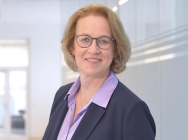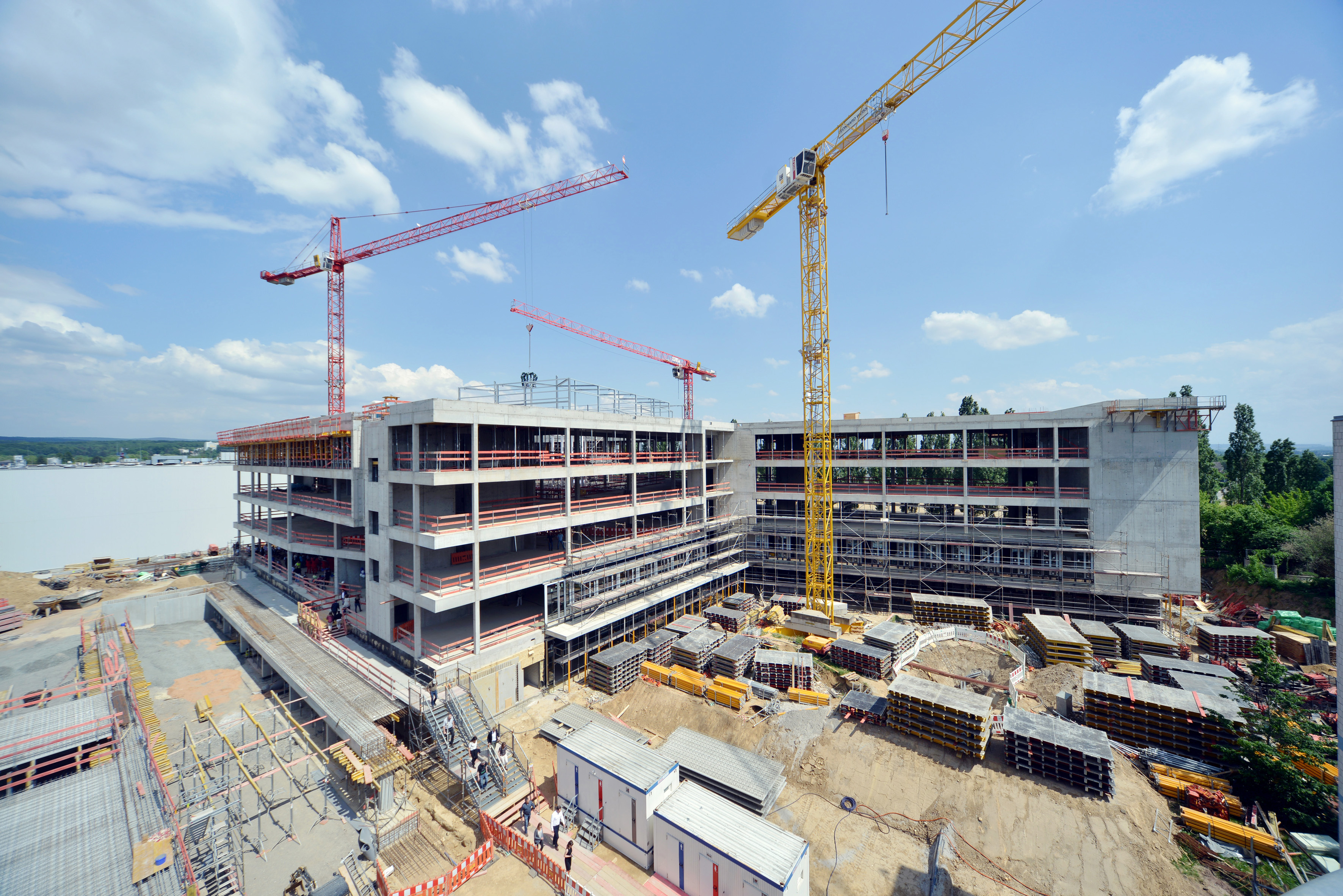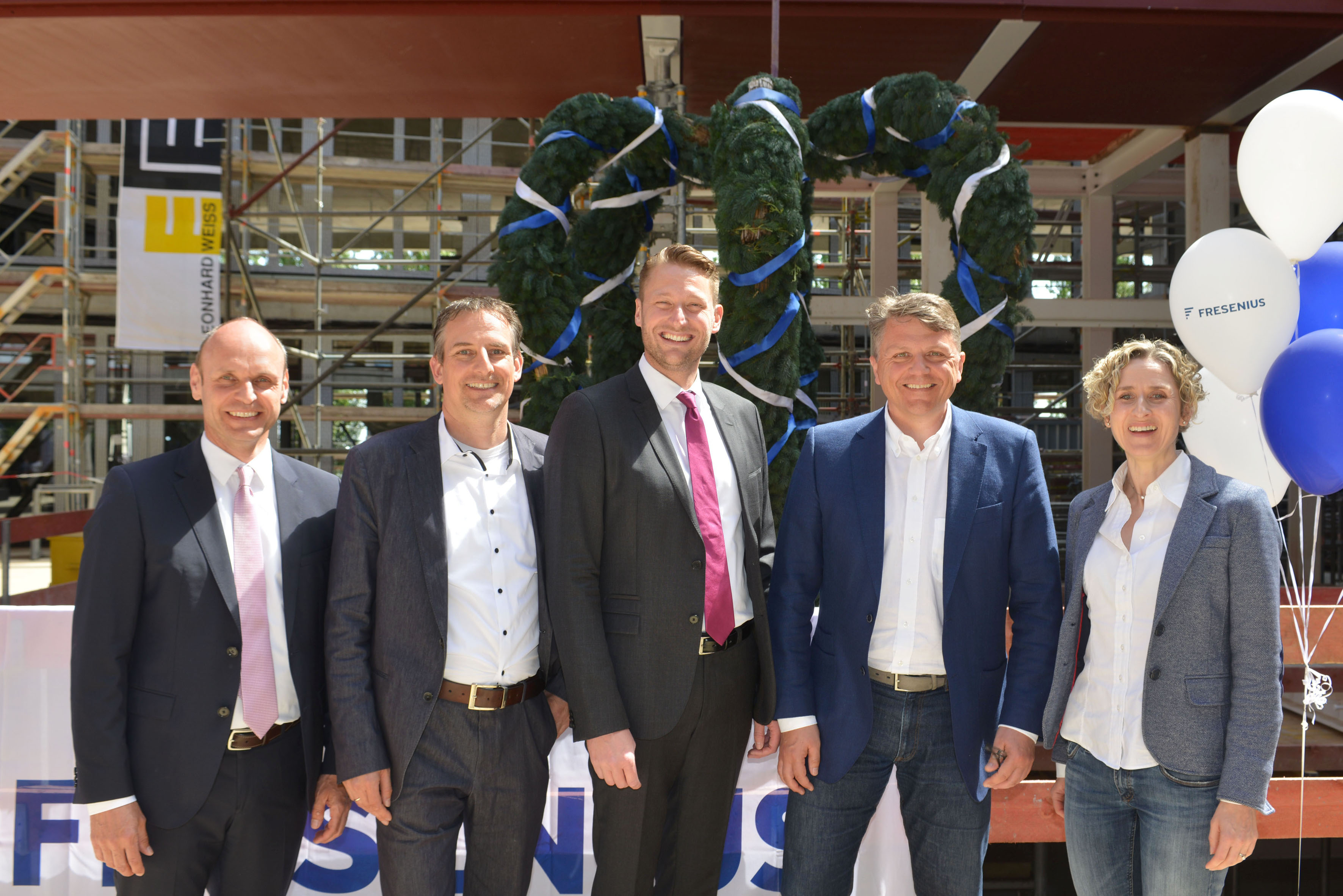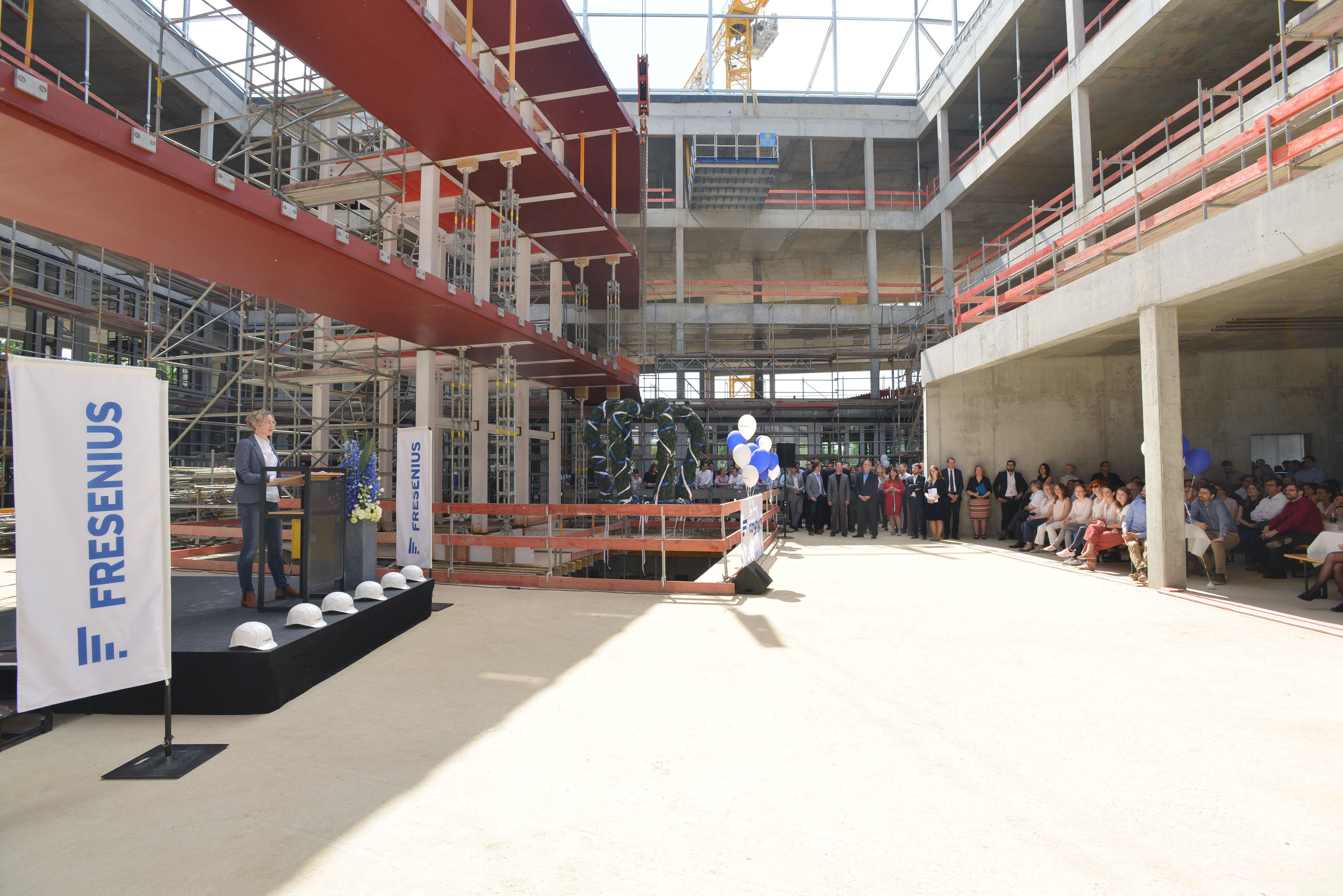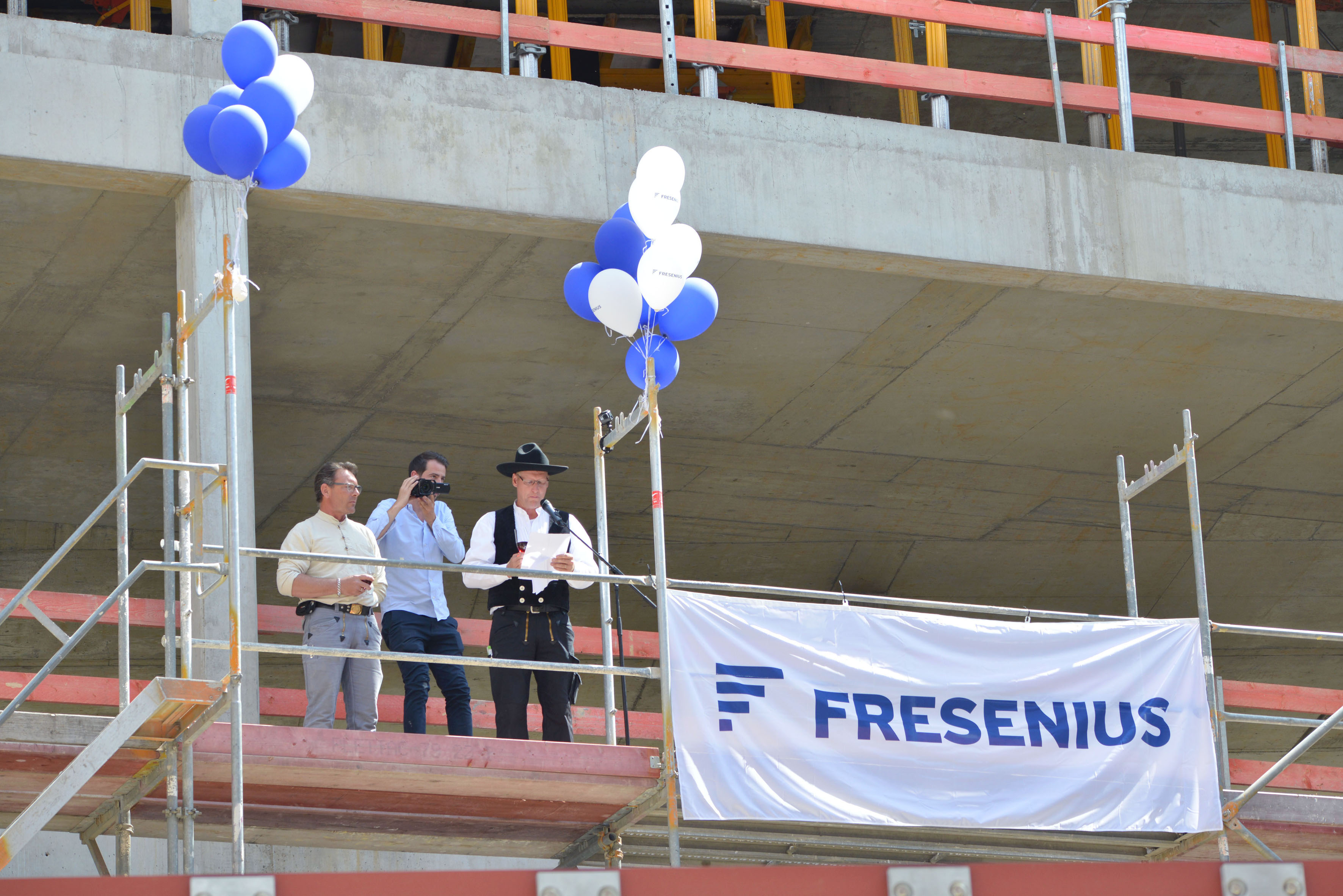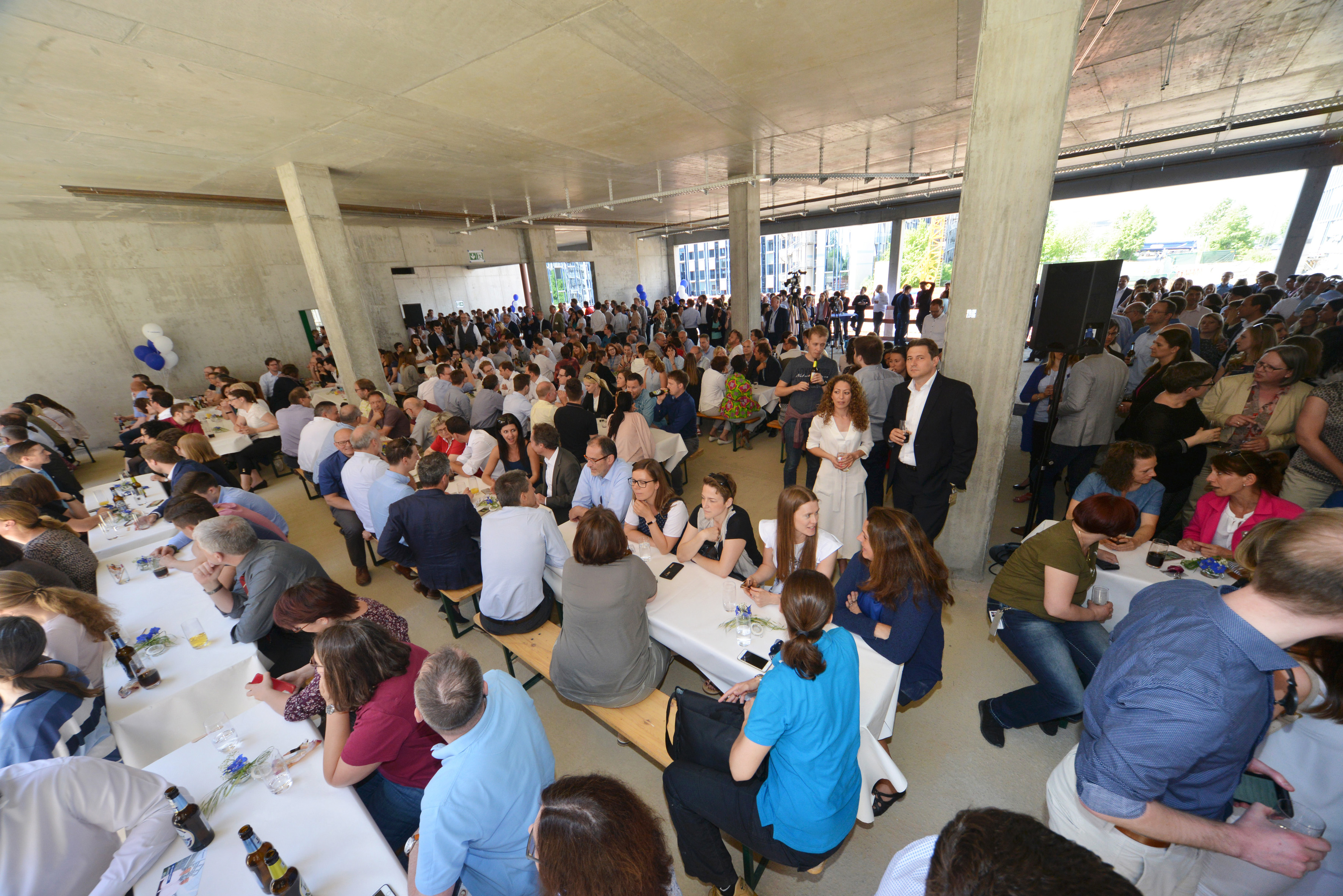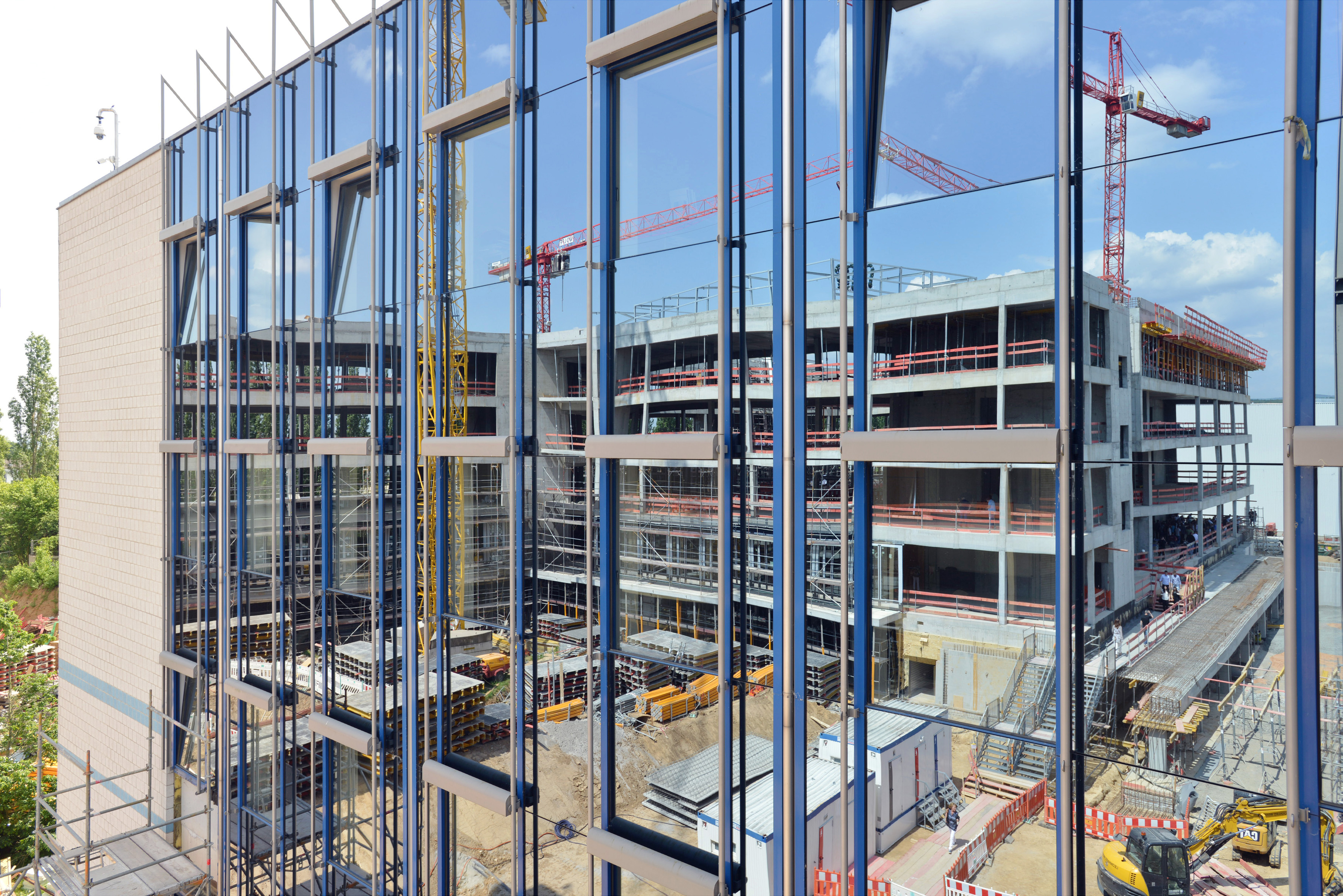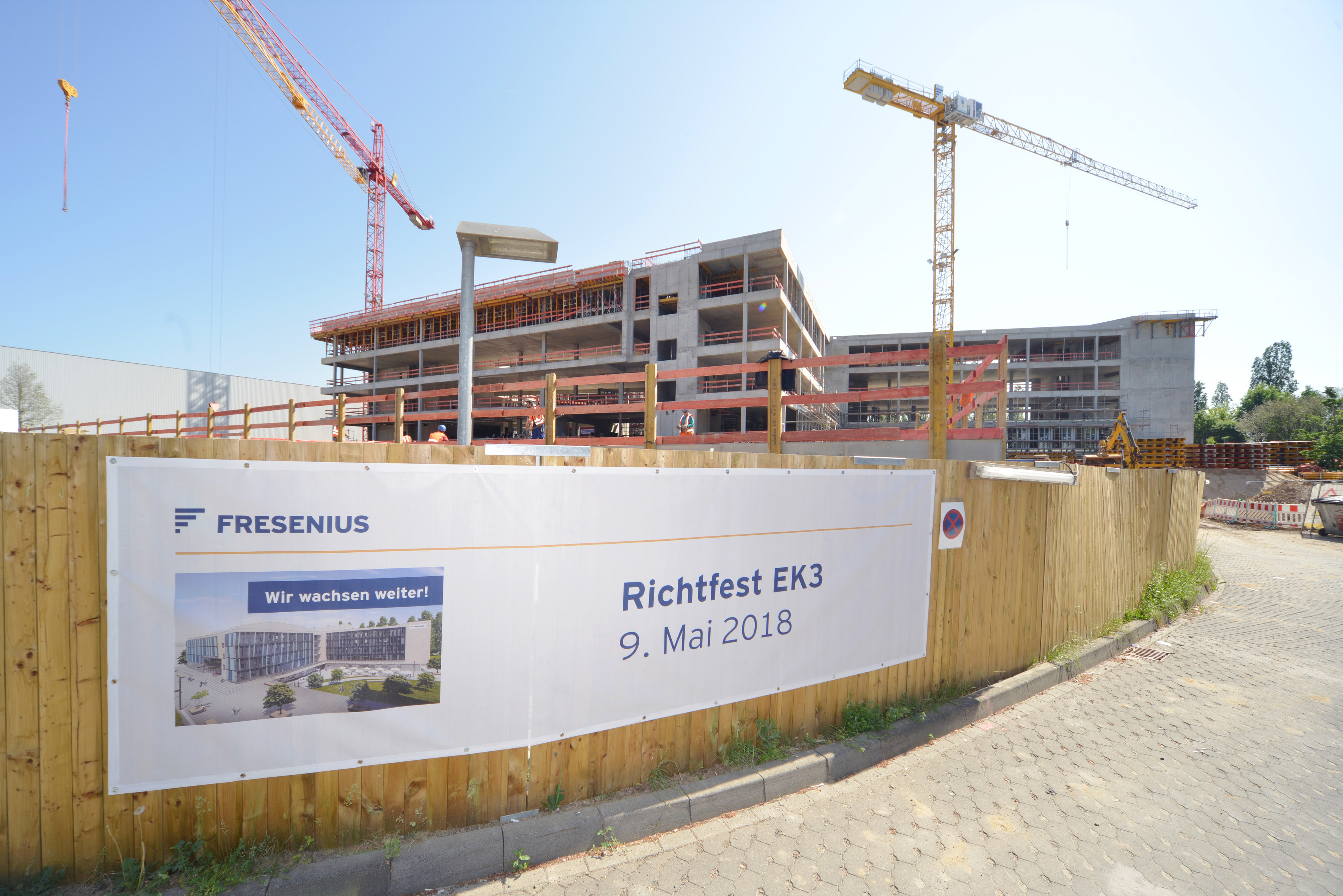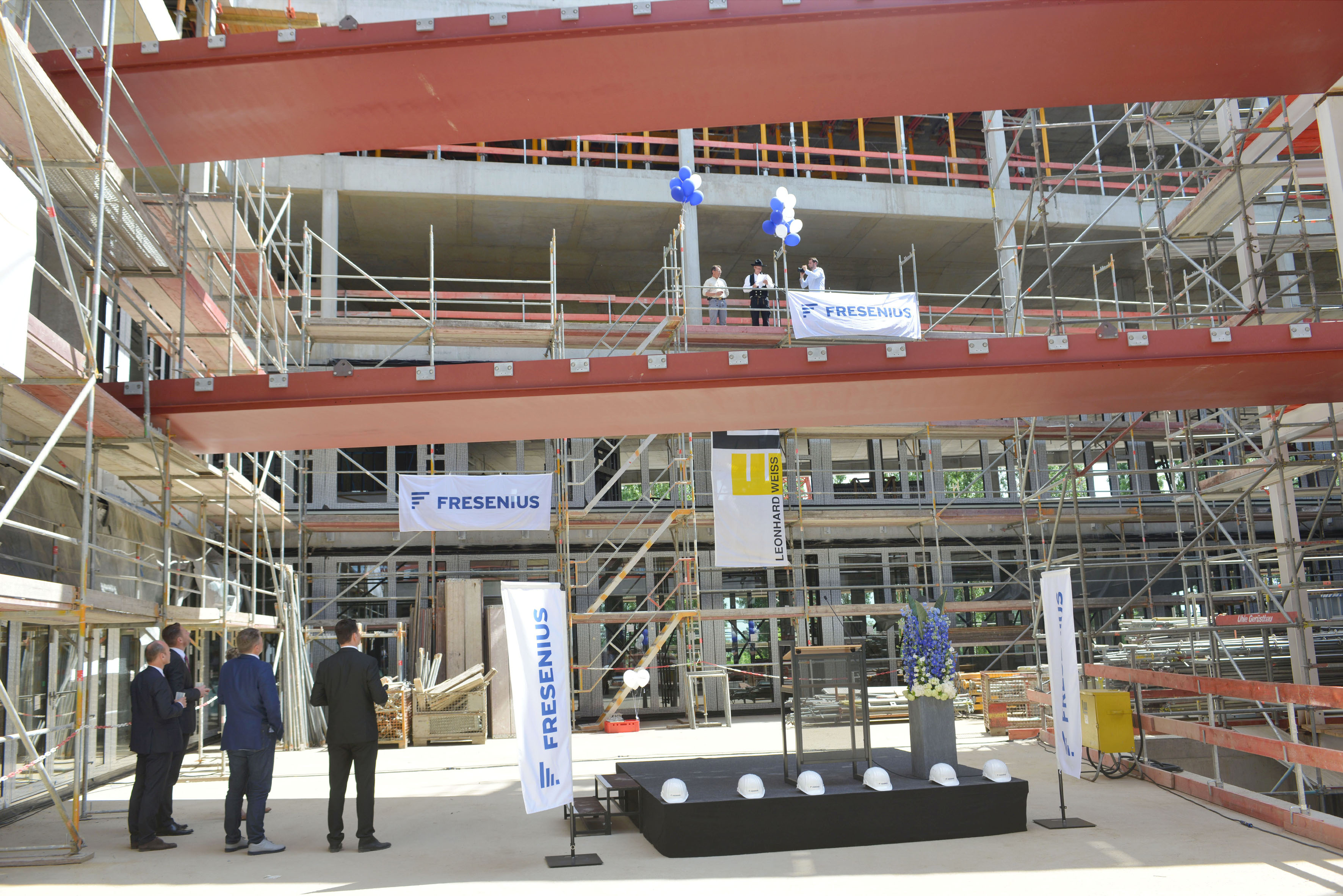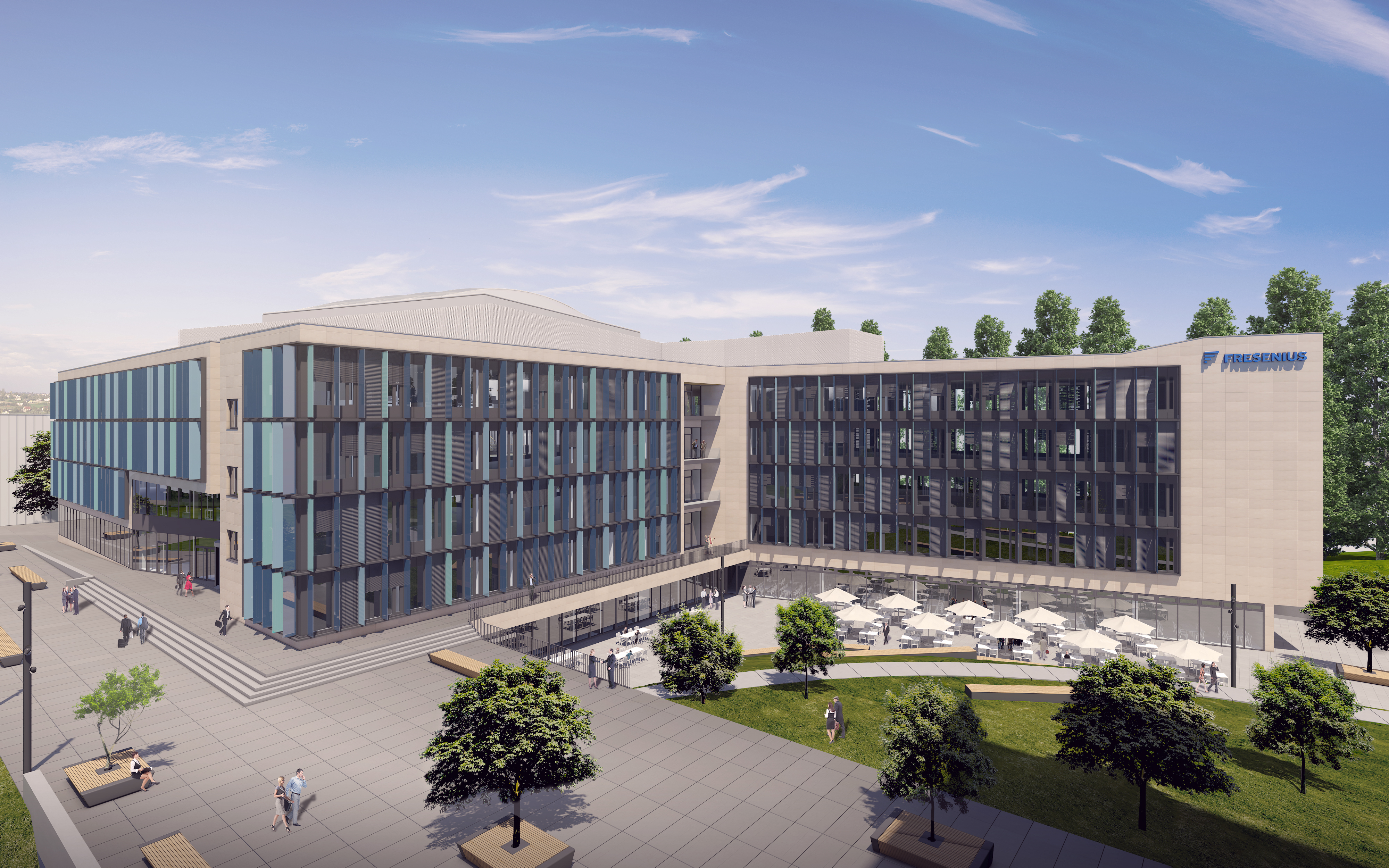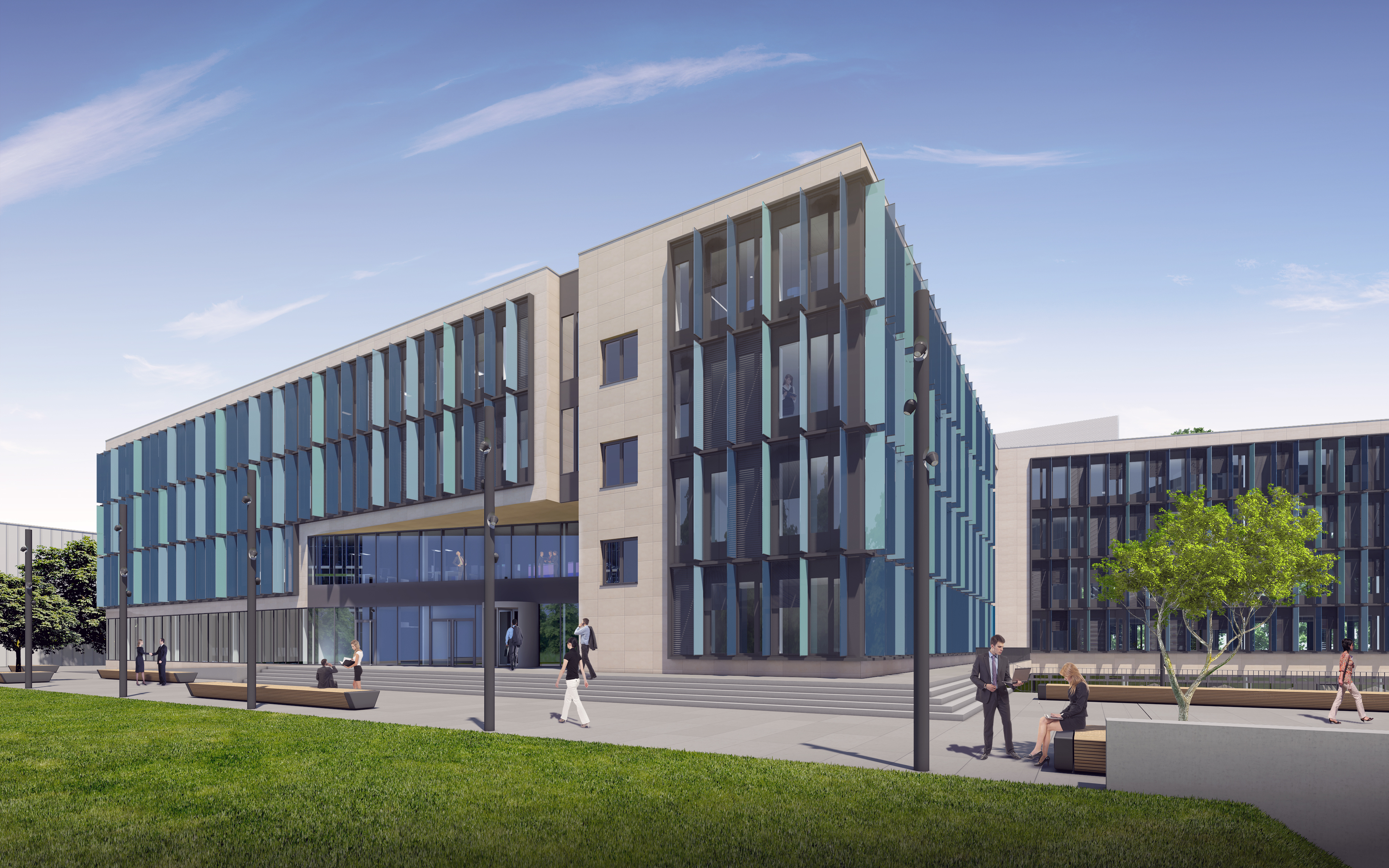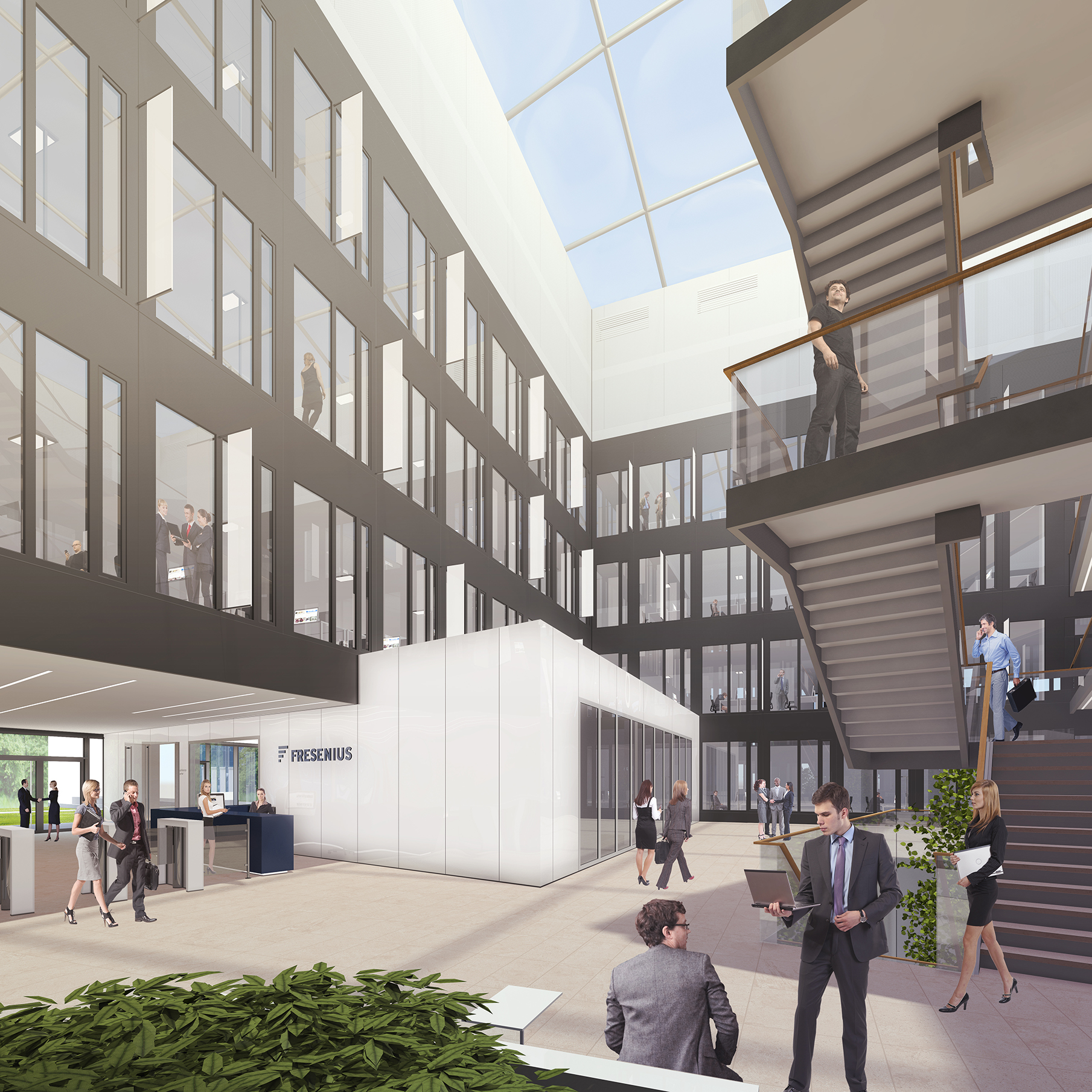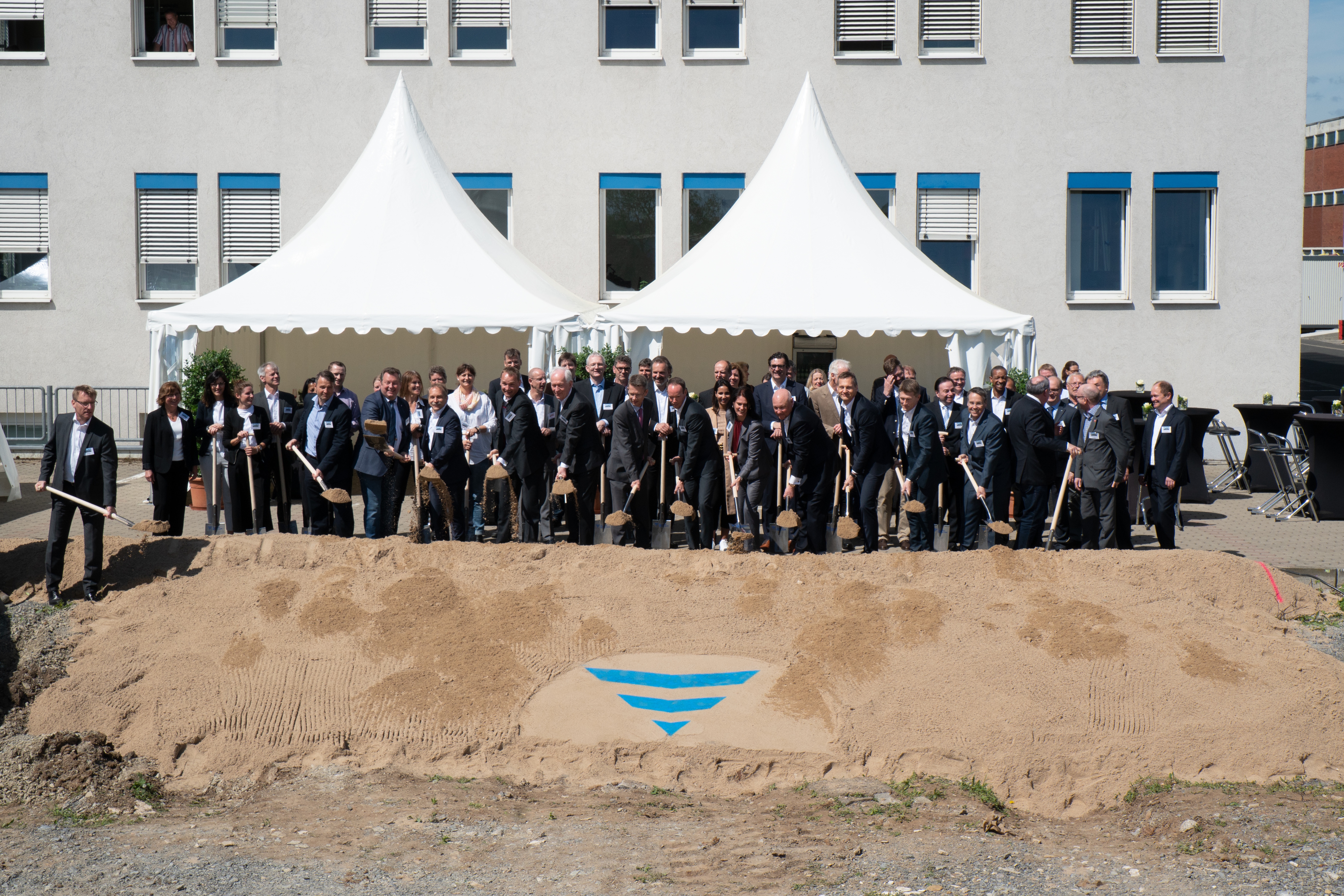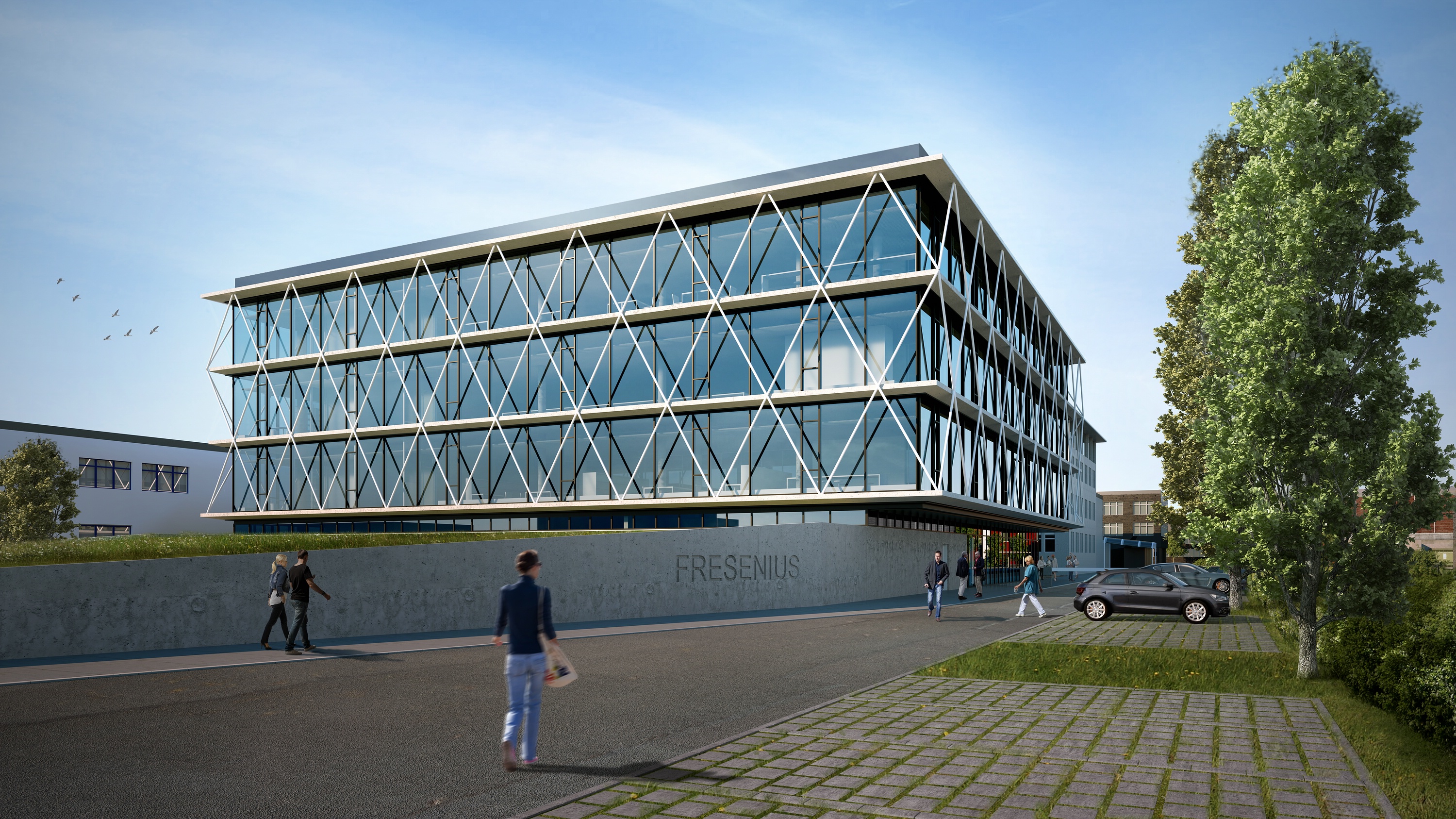Fresenius Helios held the topping-out ceremony today for the new main building at Helios HSK hospital in the German city of Wiesbaden, near Frankfurt. The seven-story structure, with almost 100,000 square meters (about 1 million square feet) of floor space, is being erected beside the existing clinic. It will have 22 operating rooms, about 1,000 beds, and a design that significantly reduces distances and waiting times for patients. Helios is investing about €200 million in the new building, while the state of Hesse is contributing €68 million. Completion is scheduled for 2021.
VAMED Vitality World has taken over operation of a health resort in Austria’s Styria state. Operating under the new name of Spa Resort Styria in the town of Bad Waltersdorf, near Graz, the resort will offer health tourism for adults. Fresenius Vamed is the market leader in Austria, with about 3.2 million annual visitors to the company’s eight thermal spas and health resorts.
VAMED Vitality World has been named the “World’s Best Thermal Spa & Medical Wellness Operator 2018” at the World Spa Awards. Four VAMED Vitality World facilities – Geinberg5 Private Villas, Aqua Dome Therme Längenfeld, Therme Laa Hotel & Spa, all in Austria, and Aquaworld Resort Budapest in the Hungarian capital – also won in their individual categories. VAMED Vitality World, part of Fresenius Vamed, operates a total of nine spa and health resorts in Austria and Hungary.
Quirónsalud, the Spanish hospital group that is part of Fresenius Helios, has acquired Clínica Medellín and entered the attractive private hospital market in Colombia. Clínica Medellín operates two centrally located hospitals in Medellín, a major city of 2.5 million people. The two facilities have a total of about 185 beds. The total investment for Clínica Medellín is more than €50 million. Following Quirónsalud's entry into Peru last year, this is another step in strengthening the company’s presence in Latin America’s growing and consolidating hospital markets. Fresenius Helios expects the transaction to close in Q1 2019, pending anti-trust and regulatory clearance.
Fresenius Kabi has opened a new state-of-the-art compounding center in Canada. It involves an investment of 11 million Canadian dollars (more than €7 million), and the new site expands the company’s presence in Mississauga, Ontario. Fresenius Kabi is responding to increasing demand for large batches of compounded medications for patients in Canadian hospitals, and the 35,000-square-foot (3,300-square-meter) compounding center has the capacity to expand. The new facility is expected to employ 70 people by 2022.
Quirónsalud, the Spanish hospital group that is part of Fresenius Helios, is opening a new hospital in Cordoba today. The company now has six hospitals in Andalusia, Spain’s most southernly autonomous community. The six-floor, approximately 25,000-square-meter (269,000-square-foot) facility includes 100 large private patient rooms, a 24-hour emergency department, seven operating rooms and a surgical outpatient clinic. Quirónsalud has invested €50 million in the new hospital.
Fresenius Helios has opened a new emergency unit at Helios Hospital Leisnig, in the eastern German state of Saxony. It contains four modern examination rooms and a specially equipped reanimation room, which will enable the hospital to provide even better care for its emergency patients, who now number some 10,000 annually. Architecturally optimized for medical processes and procedures, the new emergency unit was built in only 12 months. It required an investment by Fresenius Helios of about €1 million.
Fresenius Kabi is expanding its production and warehouse capacity in Runcorn, England, to meet increasing demand in United Kingdom’s homecare market and from UK and Ireland hospitals. The expansion’s first stage will be a new distribution and operations center, scheduled to open in early 2019. A second services unit for producing aseptically compounded parenteral nutrition products will be completed by 2020. Fresenius Kabi will invest over €9 million in the expansion.
Fresenius held the topping-out ceremony today for a new office building, part of the global healthcare group’s headquarters expansion in Bad Homburg. Local officials and business representatives joined a large number of employees for the festivities.
When the building opens next year it will offer modern workplaces for about 600 members of the company’s steadily growing workforce, as well as conference rooms, an additional staff canteen and a parking garage. Known internally as “EK3” because it will be the third Fresenius headquarters building on Else-Kröner Strasse, the five-story, “L”-formed structure will have a total volume of more than 100,000 cubic meters (over 3.5 million cubic feet) – the equivalent of about 175 single-family homes. About 11,000 cubic meters of earth were moved to make way for the building, with some 2,000 truckloads of cement and 2,000 tons of steel being used in its now-completed structural shell.
Addressing the topping-out ceremony, Rachel Empey, the Chief Financial Officer of Fresenius, stressed the importance of layout and design in facilitating cooperation between colleagues inside a building. “I hope that we’ll all use this space here in EK3 to work well together, and to cooperate even more effectively in the future,” Empey said. “It’s important that we are closely interconnected throughout the Fresenius Group. Fresenius possesses an incredible amount of knowledge and know-how: We have to share it, and make it transparent inside the Group, in order to continue growing as we are now. And then we will be able to dedicate a few more buildings here in Bad Homburg.”
Mayor Alexander Hetjes of Bad Homburg said: “We congratulate Fresenius on the very rapid and smooth construction. The residents of Bad Homburg have been following the headquarters expansion with great interest. Fresenius is a major employer, a leader in its sector, and a company that organizes and stages many activities to promote good health among the people in our city. We wish the company and everyone involved every success for the rest of the construction.”
Fresenius is investing a total of about €70 million in its headquarters expansion. The company currently employs about 3,600 people in Bad Homburg, and an additional 300 in the neighboring town of Oberursel.
Fresenius Medical Care, the world’s largest provider of dialysis products and services, has taken another step in the expansion of its production and development site in Schweinfurt, Germany. At an official ceremony today attended by Schweinfurt Mayor Sebastian Remelé, the company broke ground on a new technology center for developing dialysis machines.
As many as 250 employees from different departments will be able to work under the same roof in the 8,000-square-meter (86,000-square-foot) building. Using an open concept and designed to minimize distances that need to be covered, it will facilitate cooperation and exchanges between different teams. Fresenius Medical Care is investing a double-digit million euro sum in the construction, which is scheduled for completion late next year.
“With the new technology center, we are aiming to mesh production and development much closer together,” said Kent Wanzek, Fresenius Medical Care’s Chief Executive Officer for Global Manufacturing and Quality. “This will enable us to do an even better job developing high-quality yet affordable dialysis products for a steadily increasing number of patients.”
Dr. Olaf Schermeier, Fresenius Medical Care’s Chief Executive Officer for Global Research and Development, said: “The innovative therapy systems that will originate in our new technology center will improve the lives of our patients worldwide.”
Mayor Remelé said: “Fresenius Medical Care has been a major employer in this region and a pillar of Schweinfurt’s economy for many years. We see the building of the new technology center as a real commitment to this city, and we’re very happy about it.”
The plant in Schweinfurt, which was established in 1979, is Fresenius Medical Care’s largest development and production facility for dialysis machines and other medical devices. The company now employs more than 1,200 people in the city, about 120 kilometers (75 miles) east of Frankfurt in northern Bavaria. About one third of them work in research and development.
Dialysis machines, bloodline systems and dialyzers – the latter often dubbed “artificial kidneys” because this is where the blood is actually cleaned – are the most important products for treating chronic kidney disease. During treatment, the dialysis machine pumps the patient’s blood through bloodlines, monitors its circulation through the dialyzer, and adds anti-coagulants. Treatments are generally carried out three times weekly, and take between three and six hours each.
This release contains forward-looking statements that are subject to various risks and uncertainties. Actual results could differ materially from those described in these forward-looking statements due to certain factors, including changes in business, economic and competitive conditions, regulatory reforms, foreign exchange rate fluctuations, uncertainties in litigation or investigative proceedings, and the availability of financing. These and other risks and uncertainties are detailed in Fresenius Medical Care AG & Co. KGaA's reports filed with the U.S. Securities and Exchange Commission. Fresenius Medical Care AG & Co. KGaA does not undertake any responsibility to update the forward-looking statements in this release.
Pagination
- Previous page
- Page 4
- Next page


